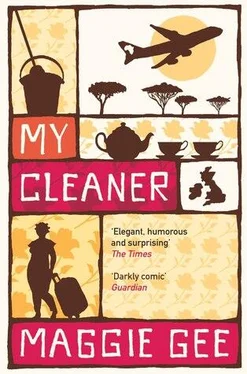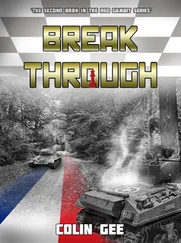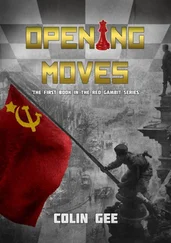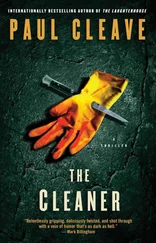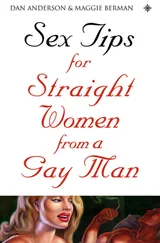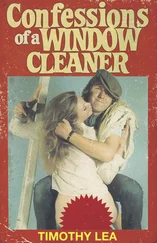But the city grows into you, little by little, like creeper, silently up from the ground. I became careless, like the other girls, and no longer wanted to go home to my family. It grew into me; I grew used to it, the pavements with only small breaks and holes, the shops with electric light inside, the askaris in uniform, carrying rifles I thought at first would be used to shoot me, the vendors selling fake gold chains, the big dirty taxi-vans everywhere, out of which men shouted and waved their hands, the hotels being built up to the sky, the hurrying people in their new smart clothes, busy women with square mannish shoulders and shoes with heels like blades of knives, the new cinema telling wonderful stories with colours and sounds as sharp as daylight (though quite soon I no longer bothered with films — the American directors did not know my story), the sweet perfumes in glass bottles, the powerful, hissing sprays against insects, the whispering voices of the professors, the way they smiled behind their glasses and pressed against me in corridors, the dirty old karoli swooping over the city, with their rusty black feathers and hanging goitres.
I worked very hard and did well at my studies, but my father’s money was never enough, and I was ashamed to ask for more. I got a job, working in the Plate Cafe, washing dishes and wiping tables. I never told my parents this. It was hard and tiring and I missed assignments.
My professor asked me what was the matter. I will not write which professor he was, because I know some people would blame him. In fact, he had always been kind to me. I had a feeling that he liked me. I told him the truth, and he made a soft sound, a tongue-and-teeth sound that meant he was sorry. “I’ll buy you a meal tonight if you are hungry, and we can talk about your problems.” I was overwhelmed. He was kind, like my father!
He took me to a restaurant some way out of town. I didn’t know the people there. I had a large glass of beer with my food, because I was nervous of talking to him. I wasn’t used to beer. I told him, “You’re kind. Thank you for being kind to me.”
“Will you be kind to me?” he replied. He looked in my eyes. His were soft and hot. “I’m an old man, but I think I can help you. We could be good friends, and help each other.”
I wanted to cry, but I felt excited. Besides, at least he had bothered to ask me. There were others who forced themselves on their pupils. That night was painful, but I did what I had to. I knew it would help me if I made him happy. When he found I was a virgin, I think he was sorry. He said, ‘God forgive me’, when he had stopped pushing. But he wasn’t sorry until he had stopped pushing.
We remained friends for nearly a year, and I didn’t go back to the Plate Cafe. He lent me books, which was wonderful. I read everything, both serious and funny. Dickens, Thackeray, Rider Haggard, PG Wodehouse, Chinua Achebe, and the endless wailing of Virginia Woolf, thin terrible books where nothing happened. But still I was happy to have read her. I loved the professor for his books. He had studied in UK, and knew everything. But he wasn’t young, and his breath was like a goat’s. I didn’t look at his chest like a woman’s, his round soft belly, the grey hair on his back. There was kindness, though, from both of us. And whatever he looked like, he was a good lover. He taught me things that young men don’t know, as I found out later when I slept with one. The boy looked cute, but he finished in seconds. ( Later I will delete all this .)
I quarrelled with the professor when I became too clever. With his help, reading over my essays, I started to get the best marks in the class. My subjects were English, Politics, — . ( I will not specify, in case the man sues me .) My friend said he didn’t know about——, so he didn’t help with those particular essays, yet my marks in that field began to improve. They improved so fast that my friend became suspicious.
“The Professor of——has many girlfriends,” he said one evening, as he did up my dress. “One of them is sick. What do you know about this?”
“I heard the same thing,” I told him, shrugging. His fingers were rather hard on my neck. “I think she is ill because she stopped eating. She had an abortion. Now she is too thin. ”
I myself had round breasts and a behind like melons. Many men wanted to be friends with me. Of course this other professor liked me, in the same way as my first professor. The second professor called me into his office and said, “You are clever as well as pretty.” I wouldn’t let him touch me under my skirt, but maybe I had plans for him in the future. He was younger and bolder than the first professor, and had a blue car with shiny paint-work that he steered boldly through the dirty old taxis. (He smoked Marlboro Lights. Now I know their smell. They smelled of America, and those were the days when I thought I would go there, somehow, anyhow, and be a rich American woman; the days when I thought I could do anything. And perhaps I will still become rich, and fly over, but I no longer want to be American. Uganda already has enough Coca-Cola. Every village is covered with its big red signs.)
The first professor was becoming jealous. “Maybe this girl is dying,” he said, and he pulled me round to face him. “The Professor of——cannot be trusted. Why do you need more than one professor? Don’t I give you enough money? Don’t I give you enough loving?”
No one in Uganda has enough money, except for Asians and politicians, who spirit their money away overseas. I kissed him, and said life was very expensive, so maybe I would have to make more money. And then I was lying on the floor, and there was warm blood coming out of my mouth where I had fallen against the table. I saw he was ashamed, but it wasn’t enough, and I slapped him, hard, with my strong peasant hand.
He said, “God forgive me,” as he had once before, and pulled on his clothes very quickly, trembling, over his pock-marked shoulders and hairy pot belly.
So then I had to write my essays alone. But perhaps what he told me saved my life. I found other teachers to help with my essays, and help pay my fees, and buy me dresses. Though many were honest, some were not. But I never said ‘Yes’ to the Professor of—, and six months later, the thin girl died.
Mary is happy when this section is finished. Mary, in fact, has told a lie. It is perfectly true that her professor hit her. It’s true, as well, that he was sorry. But she was too young and afraid to hit back.
So her autobiography has made her stronger.
She looks at herself in the dressing-table mirror.
I, Mary Tendo, am becoming a writer .
Now Mary Tendo goes back to the smart street, with the scruffy house, with the tall white steps. She is going to get it right this time. Everything is better the second time. If she could have her life again, Omar would not leave her, she would not lose Jamie.
Climbing the stairs is like a mountain, but she hopes she is looking less like a missionary. She thought about wearing a hat, or sunglasses, so that Zakira would not recognise her, but this seems too much like a detective novel. Instead she wears plain black trousers and sweater, clothes she has bought very cheap in the market, but which make her feel like a Londoner, since everyone in London seems to wear black, with the orange coat swinging open on top. In these clothes, people treat her differently, as if she is no longer simple-minded. And she has dug up a rose-bush from the garden, which she intends to give to Zakira. The roots were a problem, but they’re neatly coiled in a plastic bag inside a smarter paper one.
Mary rings loudly but nothing stirs. Still, she is so sure she will be successful that she waits for a minute, then rings again.
Читать дальше
